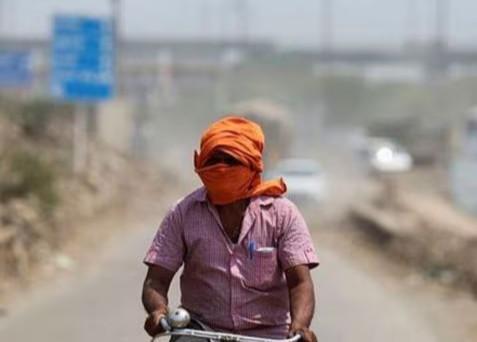
Extreme Heat Endangering Health & Productivity of Workers: Report
As the mercury rises, the world is witnessing an unprecedented heatwave that has left many people struggling to cope with the scorching temperatures. While the heatwave has been making headlines globally, a recent report by the World Health Organisation (WHO) and the World Meteorological Organisation (WMO) has highlighted a more pressing concern – the impact of extreme heat on the health and productivity of workers.
According to the report, worker productivity drops by 2-3% for every degree above 20°C. This may seem like a small percentage, but when aggregated, it can have a significant impact on the overall performance of industries and economies.
The report highlights that manual workers in agriculture, construction sectors, and vulnerable populations like children and the elderly in developing countries are particularly at risk. These individuals are often exposed to harsh weather conditions and lack access to basic amenities like shade, hydration, and cooling systems.
The health risks associated with extreme heat are numerous and severe. Heatstroke, dehydration, and kidney dysfunction are just a few of the potential consequences of prolonged exposure to high temperatures. In extreme cases, heat-related illnesses can be life-threatening.
The report emphasizes that the impact of heat on workers is not limited to physical health. Mental health is also at risk, with workers experiencing increased stress, anxiety, and fatigue due to the extreme heat. This can lead to decreased morale, reduced job satisfaction, and increased absenteeism.
In developing countries, the situation is even more dire. Many workers lack access to basic healthcare facilities and emergency services, making it difficult to respond to heat-related emergencies. Children and the elderly are particularly vulnerable, as they may not have the physical resilience to cope with extreme temperatures.
The report urges governments, employers, and individuals to take immediate action to mitigate the impact of extreme heat on workers. This includes implementing heat stress prevention measures, providing access to cooling systems, and promoting heat-related health awareness.
Some of the measures recommended by the report include:
- Providing regular breaks in shaded areas for workers to rest and rehydrate
- Encouraging workers to wear light, loose-fitting clothing and hats to protect themselves from the sun
- Implementing cooling systems, such as fans and misting systems, in workplaces
- Providing access to clean drinking water and encouraging workers to drink regularly
- Training workers on heat-related health risks and emergency response procedures
In conclusion, the report highlights the urgent need for action to protect workers from the extreme heat. As temperatures continue to rise, it is essential that we take proactive measures to mitigate the impact on health and productivity. By implementing heat stress prevention measures and promoting heat-related health awareness, we can ensure that workers are able to perform their duties safely and effectively, while also protecting their health and well-being.
Source: https://repository.inshorts.com/articles/en/PTI/45d9bd2d-ff57-417c-9e5f-831344bb34b0






